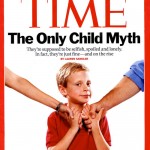Every Monday in Citizenship Confusion, Alan Noble discusses how we confuse our heavenly citizenship with citizenship to the state, culture, and the world.
As I watched the news coverage of the announcement of Bin Laden’s death last night, I also diligently read my Facebook newsfeed to hear how people were reacting; the results were quite telling.
At first, the statuses were primarily factual: Bin Laden is dead. But they quickly became more opinionated. Some were thrilled at his death and viewed it as a cause for celebration. Others took the opportunity to chastise their friends by pointing out that Christians should never rejoice over the death of an enemy, citing Proverbs 24:17. More than a few retorted that there are biblical examples of people rejoicing over the downfall of their enemies or that there are many verses which establish God’s justice, and certainly we can delight in God’s justice.
While this theological debate raged, some friends took a political route. Obama was able to accomplish what Bush was not! Or, Obama is wrongly taking credit for the hard work of Bush, the CIA, and Special Forces. Or maybe Obama planned this to raise his approval rating before the election. Perhaps it was a conspiracy!
Finally, the statuses took a turn toward irony and humor, which seems to be inevitable for any discourse on the Internet. I admit, this is my own weakness, and when I heard the news, I wanted to post a status which exclaimed that Obama just won the future by defeating Bin Laden. Not so much to poke fun at the very serious matter, but to point out the absurdity of Obama’s new catchphrase. But it would have inevitably belittled the event and its significance, shifting the attention away from a significant moment in history which might have profound implications for our national security for decades and towards myself.
For most of us (myself, at least), when historic events like this happen our first reaction is to head to Facebook or Twitter. Part of this reaction seems to be a natural and healthy desire to share an important experience with those we love or to use our online community to learn more about the event. But these gatherings on social networks that occur right after a historic event seem to also encourage us to use the event to promote ourselves. Instead of sharing a historic moment with our community, where the focus is outward towards the event and around us towards our community, we can easily shift our focus to drawing our community towards ourselves–our wit, intelligence, spirituality, politics, etc–using the event primarily as a means to our own ends. (To preempt the inevitable comments: 1. I do not think this necessarily must happen. 2. This is a general tendency of all discourse on social networks, but it seems particularly inappropriate at times like these. 3. I am highly guilty of self-centered networking)
So, how should we react? Following Christ means a radical refocusing of our desires, loves, goals, hopes, and pleasures. While the world and our flesh might invite us to turn every event into opportunity to promote and delight in ourselves, Christ calls us to be outward oriented, towards God and our neighbors. This gratuitous giving of ourselves can take many forms, but it fundamentally requires that we question the orientation of our hearts and our words, and, in this situation, consider what it means to love one who cursed us, and to even love him after his death.
Update:
Stephen Smith (a close friend of CaPC) has a great post over at Christianity Today which analyzes the uses of Bible verses on Facebook and Twitter. His findings are well worth a read.











